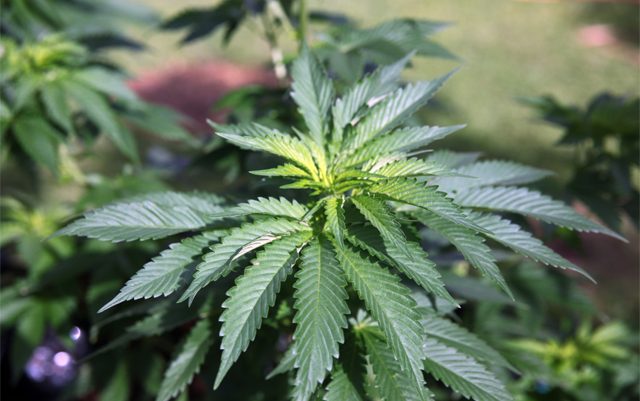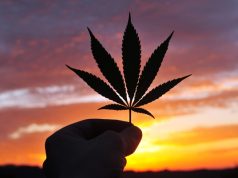The Department of Justice (DOJ) and the Drug Enforcement Agency (DEA), in conjunction with appropriate government agencies such as Health and Human Services (HHS), and the Department of Agriculture (USDA) issued a slew of announcements on Thursday morning regarding cannabis and hemp policy, petitions, and statements of reinforcement.
Let’s break them down:
FDA/DOJ is Not Rescheduling Cannabis
The big news is that the DOJ denied any rescheduling of cannabis, issuing official documents to the Federal Register on Thursday morning outlining why cannabis will remain a Schedule 1 substance under the Controlled Substances Act. They also note that even if they did reschedule, it would be to a schedule 2, not 3 – due to an international drug control treaty that wouldn’t allow for it.
Here are the three reasons they cite:
- Marijuana has a high potential for abuse. The HHS evaluation and the additional data gathered by the DEA show that marijuana has a high potential for abuse.
- Marijuana has no currently accepted medical use in treatment in the United States. Based on the established five-part test for making such determination, marijuana has no “currently accepted medical use” because: as detailed in the HHS evaluation, the drug’s chemistry is not known and reproducible; there are no adequate safety studies; there are no adequate and well-controlled studies proving efficacy; the drug is not accepted by qualified experts; and the scientific evidence is not widely available.
- Marijuana lacks accepted safety for use under medical supervision. At present, there are no marijuana products approved by the U.S. Food and Drug Administration (FDA), nor is marijuana under a New Drug Application (NDA) evaluation at the FDA for any indication. The HHS evaluation states that marijuana does not have a currently accepted medical use in treatment in the United States or a currently accepted medical use with severe restrictions. At this time, the known risks of marijuana use have not been shown to be outweighed by specific benefits in well-controlled clinical trials that scientifically evaluate safety and efficacy.
Marijuana was denied twice today, actually. Two parties, Mr. Krumm in 2011 and Ms. Raimondo and Mr. Inslee in 2009 petitioned the DEA to remove marijuana from Schedule I and they were both denied for the reasons listed above.
Ending the NIDA Monopoly
On the bright side, the federal government did throw cannabis enthusiasts and researchers a bone by effectively ending the monopoly the National Institute on Drug Abuse (NIDA) has over cannabis grown for research use. The new policy statement from the DEA says that in consultation with NIDA and the FDA, they are outlining a new approach to allow additional marijuana growers to apply to become registered with the DEA, while upholding U.S. treaty obligations and the CSA. Now, growers can apply to register with the DEA to supply cannabis for studies AND privately funded commercial endeavors aimed at drug product development.
From the document: “Although the effects of CBD are not yet fully understood by scientists, and research is ongoing in this area, some studies suggest that CBD may have uses in the treatment of seizures and other neurological disorders. A growing number of researchers have expressed interest in conducting research with extracts of marijuana that have a particular percentage of CBD and other cannabinoids. DEA fully supports research in this area.”
Persons interested in applying for a registration to become a bulk manufacturer of marijuana to supply legitimate researchers can find instructions and the application form by going to the DEA Office of Diversion Control website registration page and applicants will need to submit Form 225, according to the policy statement.
Industrial Hemp
The DOJ, HHS, and USDA apparently felt the need to issue a statement outlining existing policy on growing hemp in America. Basically, only a few states are allowed to grow hemp under their pilot programs. This document simply reinforces what is legal and what is not when it comes to hemp cultivation. It also shows how individuals and institutions can legally grow industrial hemp in accordance with Federal law.
More, Consistent, Cannabis Research
It wasn’t a huge surprise, yet cannabis policy people and advocates may have to re-strategize their goals for the immediate future since rescheduling is off the table. After reading the documents, it’s clear the federal government needs more clinical research and data from legal medical states. They recommend future studies focus on “consistent administration and reproducible dosing of marijuana, potentially through the use of administration methods other than smoking.”
It’s not what researchers wanted, however, the end to the NIDA monopoly means access to all around better, more potent cannabis for studies. HHS also acknowledges the hurdles facing many researchers trying to approve their studies.
“Concerns have been raised about whether the existing federal regulatory system is flexible enough to respond to increased interest in research into the potential therapeutic uses of marijuana and marijuana-derived drugs,” they wrote in the statement. “HHS welcomes an opportunity to continue to explore these concerns with DEA.”






